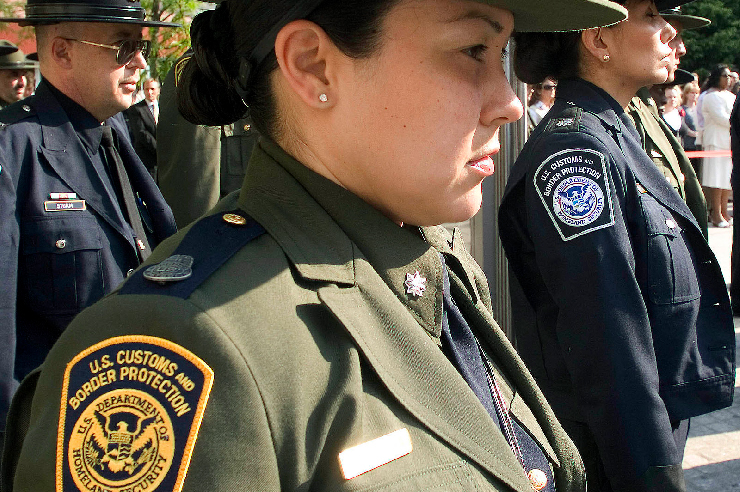Public pressure must force the new Department of Homeland Security to end abuses begun under the INS.
Published in Newsday.
In the week before today’s deadline, thousands of people from five Muslim countries presented themselves for the fourth round of special registration at the Department of Homeland Security. For many like them, this post-9/11 immigration initiative resulted in detention, abuse and deportation proceedings.
Few mourned when the agency that first administered special registration, the widely despised Immigration and Naturalization Service (INS), merged into the Department of Homeland Security on March 1. But the early-morning lines that stretched for blocks outside the federal building in downtown Manhattan highlighted the concern that immigrant communities may suffer further under the new bureaucracy.
The view—prevalent since Sept. 11, 2001—of immigration as primarily a national security matter overlooks the reality that the overwhelming majority of noncitizen residents pose no threat to the safety of the country. They in fact make invaluable contributions to our communities and workplaces.
Recognizing this, the new department must reject punitive policies and instead adopt procedures to ensure that officials respect the rights of non-citizens. In March 2000, individuals born abroad made up 10.4 percent of the U.S. population. A 1998 study by the National Immigration Forum and the Cato Institute determined that immigrant households and businesses pay $162 billion annually in federal, state and local taxes.
Politicians across the political spectrum have echoed Alan Greenspan’s belief that “this country has benefited immensely from the fact that we draw people from all over the world.”
Government officials assure that the move into Homeland Security will be painless for noncitizens. But Secretary Tom Ridge regularly fails to mention ensuring fairness for immigrant families when describing his department’s mission.
Homeland Security sent an especially distressing signal on March 18, when Ridge announced that asylum seekers from 34 countries will automatically be detained during their proceedings as part of Operation Liberty Shield. This move to lock up people seeking to escape persecution is the latest in a series of post-9/11 policies that subject immigrants from Muslim-majority countries to harsh treatment without regard for individual circumstances. Such blanket discrimination undermines President Bush’s assurances that we want to work together with Muslim communities in the war on terrorism.
Special registration, which began in December of 2002, has already demonstrated the potential of such policies to erode human rights while failing to prevent terrorism. According to the most recent Department of Homeland Security statistics, 46,035 people from 24 predominantly Muslim countries plus North Korea were registered as of March 4. More than 4,800 deportation cases have begun, largely owing to minor immigration violations. Thousands of those who have complied with special registration have been detained—some shackled, strip searched and held without charges—for acts as harmless as falling one credit short of the course load required on a student visa.
Of course, actual terrorists are the people least likely to present themselves for such treatment.
Non-citizen residents working to bring a spouse or a child to this country legally already face years worth of backlogs. If the Department of Homeland Security continues to devote its personnel to punitive programs, it is immigrants and their families that will pay the price of increased bureaucratic delays.
As Homeland Security absorbs the ill-fated INS, officials must instead institute reforms that uphold the dignity of those who depend on immigration services to live and work in this country. A first step would be to end post-9/11 policies, including special registration, that are not mandated by law. These policies not only discriminate against South Asians, Arabs, Muslims and Filipinos, but negatively affect all immigrant communities.
Secondly, rather than shifting resources from immigration services to enforcement, Homeland Security must devote itself to reducing the backlogs and administrative errors that force noncitizens to fall out of status through no errors of their own. Third, the department should invest in developing alternatives to detention, particularly for asylum-seekers and refugees.
Finally, legislators should heed the demand of community and legal organizations that a strengthened Homeland Security ombudsman receive specific authority to investigate and access records, and that the confidentiality of complainants be protected.
In a nation built by immigrants, we cannot leave the question of fair treatment in the hands of political functionaries. Public pressure must force the new agency to make sure that respect for immigrant rights is at the fore of restructuring efforts and not lost in the bureaucratic shuffle.
__________
Photo credit: / Wikipedia Commons.
